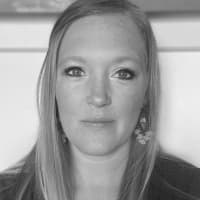What I Wish I’d Known My First Year of Nursing School: Advice From Nursing Grads to New Students

Some nurses will tell you that completing their nursing education was one of the most difficult experiences — and biggest accomplishments — of their lives. And it’s no wonder why.
Compared to other academic disciplines, nursing students face unique challenges, such as strict pass/fail standards, clinical experiences, and witnessing physical and emotional trauma.
Starting nursing school can be intimidating. But if you were accepted into a program — a feat in itself — you have what it takes to succeed.
We asked 10 recent nursing graduates what they wish they had known when they started their own programs so you can use their strategies for success.
10 Pieces of Advice From Recent Nursing Grads to New Students
1. “Find your people.”
“Nursing school is one of those things that sounds all-encompassing and overwhelming, but as a recent graduate, let me tell you that you will make it through,” says Valerie Lam, a graduate from Johns Hopkins’ master’s entry-into-nursing program.
“Success in nursing school looks a little different for everyone, but some of the most important things I have found that contributed to my success at Hopkins have nothing to do with nursing at all,” she says.
One of Lam’s biggest tips is to build your social circle during your education. While it can be easy to let personal relationships fall to the wayside during nursing school, Lam says having a support system was essential for her.
“I have played many different sports growing up, but nursing school is the biggest team sport I’ve come across and you want a solid team to get you through it,” she says.

Valerie Lam
Valerie Lam graduated from University of California, Davis in 2020, where she studied human development and was the head of the university’s nursing club. Outside of school, she worked as a physical therapy assistant and an EMT. She graduated from Johns Hopkins’ master’s entry-into-nursing program in 2022 and will be starting work in the pediatric emergency department at Johns Hopkins.
2. “Nothing worth having comes easy.”
Nikule Abel is a graduate of the University of Nevada, Las Vegas nursing program and is now a surgical trauma nurse at Mayo Clinic in Rochester, Minnesota. She says that bracing yourself for the inevitable setbacks that occur during school, and knowing they won’t make or break your success, is important.
“The one thing I wish I would have known,” Abel says, “is that nursing school can be a very humbling experience. You won’t know everything, you might fail an exam, and you may rethink if this is the right career path for you.”

Nikule Abel
Nikule Abel graduated from University of Nevada, Las Vegas School of Nursing with her bachelor of science in nursing in 2021. She is currently a surgical trauma nurse at Mayo Clinic in Rochester, Minnesota, and is a board director for the Minnesota Organization of Registered Nurses. She also served as director of the National Student Nurses Association while pursuing her degree.
3. “Fake it until you make it.”
Erik Nguyen, a graduate of Clark College’s nursing program in Vancouver, Washington, says projecting confidence — even in moments of insecurity — got him through many aspects of nursing school.
“A big tip that I wish I heard early in nursing school was ‘fake it until you make it.’ In other words, portray confidence even if you don’t feel confident,” he says.
“Using that mantra in patient care is important because, during clinicals, we work with real people. Portraying confidence in what you are doing eases the patients and it makes practicing skills go a lot smoother,” Nguyen says.
Nguyen also says to take advantage of being in a learning environment as much as possible. “Don’t be afraid to ask questions and take on all the learning experiences while you have someone there devoted to teaching you and ensuring you’re safe.”

Erik Nguyen
Erik Nguyen graduated from Clark College’s nursing program in Vancouver, Washington, in 2021. He has worked at various hospitals and healthcare centers in the Pacific Northwest and in California. He has received employee of the month awards, and his current goal is to move into a critical care setting.
4. “Teaching is one of the best ways to learn.”
Donna Schisler, a graduate of Methodist College in Peoria, Illinois, who now works as a legal nursing consultant, says that studying in a group and taking an active role is important.
“When you study in this way, you get the opportunity to hear the same material in multiple different ways, and you can use the time to teach the material to others. Teaching is one of the best ways to learn and retain important information,” she says.
According to Schisler, some of the hardest classes in nursing programs are anatomy and psychology courses. “In both cases, group studying is again the best way to really learn the material.”

Donna Schisler
Donna Schisler graduated from Methodist College of Nursing in Illinois in 2013 and has nearly 10 years of experience in nursing. In 2017, she gained her adult-gerontology acute care nurse practitioner certification. Today, she is a legal consultant of medical-related cases and the clinical manager at Advantis Medical Staffing.
5. “Remain open-minded.”
Faith Metlock, a graduate of Ohio State University’s nursing program, recommends staying open-minded when it comes to all aspects of the experience.
“Remain open-minded to all opportunities: The most beautiful aspect of the nursing profession is that there are countless areas to which you can apply your nursing expertise,” she says.
She encourages nursing students to explore different learning styles and see what works best for their understanding in that class. Learning styles include:
- Kinesthetic
- Auditory
- Reading/writing
- Visual
- Combination of a few
“Completely immerse yourself in all clinical experiences, network with registered nurses, and shadow different specialties before committing to an area,” Metlock says.

Faith Metlock
Faith Metlock recently graduated with honors from Ohio State University’s College of Nursing program. Now that she has completed her bachelor’s in nursing, she is pursuing a doctor of philosophy in nursing from Johns Hopkins. Metlock also founded Black Health Explained, a website focused on increasing the Black community’s access to important health information.
6. “Let your actions lead you.”
Malick Krubally is a graduate from Western Governors University’s nursing program and recently completed his master of science in nursing leadership and management.
While he cites effective time management and self-discipline as necessary skills, for Krubally, continuously reflecting on his passion for the profession was his ultimate motivator.
“To be successful in nursing school, you should focus on your vision of becoming a nurse and let your actions lead you to discovering that vision,” he says.

Malick Krubally
Malick Krubally is originally from Gambia and now lives in San Diego where he works for Springboard Healthcare. Years after completing his bachelor’s in nursing, he decided to pursue a master’s degree in science and nursing management from Western Governors University, which he recently completed. Krubally now plans to pursue his doctorate in nursing.
7. “Make use of your professors and teaching assistants.”
Like many nursing students, Melissa Lancellotti, a recent graduate of University of Pittsburgh’s School of Nursing, says she didn’t know what she was walking into when starting her first classes.
“However, I discovered very early on that a good way to ease the difficulty of my classes was to utilize my professors and teaching assistants to clarify any class content that I found confusing,” she says.
Like other academic disciplines, most nursing programs offer office hours hosted by professors or teaching assistants to answer questions about material covered in class. This gives you the chance to clarify any confusing concepts.
“This proved to be very useful as not only did it help me understand the content I was learning better, but it also helped me to create relationships with my professors,” she says.

Melissa Lancellotti
Melissa Lancellotti graduated from University of Pittsburgh’s School of Nursing in 2022. She was president and secretary of Chi Eta Phi, an organization for male and female registered nurses and student nurses from 2020 to 2021. She plans to stay in Pittsburgh to work at UPMC Children’s Hospital of Pittsburgh as a pediatric nurse.
8. “Invite innovative solutions.”
Ryan Hartman is a recent graduate of Vanderbilt’s master of science in nursing program. He is now a nurse practitioner in Nashville and is enrolled in his alma mater’s doctor of nursing practice program. He says his adaptability was essential to his academic success and to his patients’ health.
“COVID forced us to think creatively and be flexible, which is exactly what I needed to do as a student and a nurse,” he says. “One of the greatest lessons we learned was to challenge our prior assumptions about how to care for the whole person.”
When faced with a new assignment or task, Hartman recommends considering different ways to approach the issue.
“When working in a group, listen to your classmates’ ideas and consider them, particularly if they’re different from yours,” he says.
“Healthcare is constantly evolving so nurses need to be able to adapt — especially when they’re leading the evolution,” Hartman says. “Be ready to quickly adapt, invite innovative solutions, and stay open-minded. Don’t depend on the old or traditional ways you’ve always studied.”

Ryan Hartman
Prior to becoming a nurse, Ryan Hartman was a personal trainer and health coach. He decided to combine his passion for health with his desire to help others. Hartman graduated from Vanderbilt’s School of Nursing in 2022 with his master’s in nursing. He currently works as a nurse practitioner specializing in neurology and is pursuing his doctor of nursing at his alma mater.
9. “Partnerships with peers will make all the difference.”
Similar to some of the other nurses interviewed, Jessica Garafola, a graduate of University of Miami’s nursing school, says knowing when to ask for help and leaning on social support was essential for her.
“At times, I did not need much support from my peers. But other times, such as when I got sick, my capacity was severely diminished. I relied on my peers for help at those times and then reciprocated on other occasions,” she says.
“Asking for help can be challenging because we don’t want to harm the relationship or feel like a burden to others,” Garafola says. “However, we should trust them to appropriately assess and communicate the extent to which they can help us. If you develop the courage to ask for help, your partnerships with peers will make all the difference.”

Jessica Garafola
Jessica Garafola graduated with her bachelor of science in nursing from University of Miami’s School of Nursing in 2022. Before starting the program, Garafola worked in politics in Florida, but she left at the height of the pandemic to pursue her dream of becoming a nurse. Garafola was one of a handful of students in her cohort to earn the school’s accelerated BSN excellence in leadership award.
10. “Prioritize time.”
Dylan Wiggins, a graduate from University of Portland’s nursing program, got through school by prioritizing the most important assignments to maximize his efficiency.
“I would recommend talking with professors and fellow students to help you determine where you should be focusing your time and energy,” he says. “Prioritize time for things that you have to memorize like pharmacology, as well as things that are pass or fail, such as clinical skills.”
“Nurses are not expected to know everything in any given moment or situation, but they are expected to know how to quickly and efficiently get the information they need to do their job effectively in order to keep their patients safe,” he adds.
Wiggins also recommends asking a nursing professor to become your mentor, which can help not only in nursing school, but throughout your career. Wiggins asked his psychiatric nursing professor to mentor him and ended up getting his first job as a registered nurse on a unit she managed.
“I have maintained my relationship with her and she helps guide my career decisions as well as providing objective advice when I encounter difficult situations or dynamics at work,” he says.

Dylan Wiggins
Dylan Wiggins was working in healthcare long before pursuing nursing. His first role in healthcare was in a group home for disabled children as a caregiver. He graduated from the University of Portland with a bachelor’s in nursing in 2017 and has since been focused in working with vulnerable populations as a mental health nurse.
Conclusion
Nursing school can be a tough road. But if you are driven by a vocation for care, no challenge is insurmountable. With effective time management for nursing students, good organization skills, and a solid nursing network of support, you might surprise yourself with how capable you are.
Hopefully, some of these graduates’ words of wisdom will stick with you and help you as you begin your path toward becoming a nurse. You may also be interested in our nursing students toolkit if you are looking for more strategies for academic success.